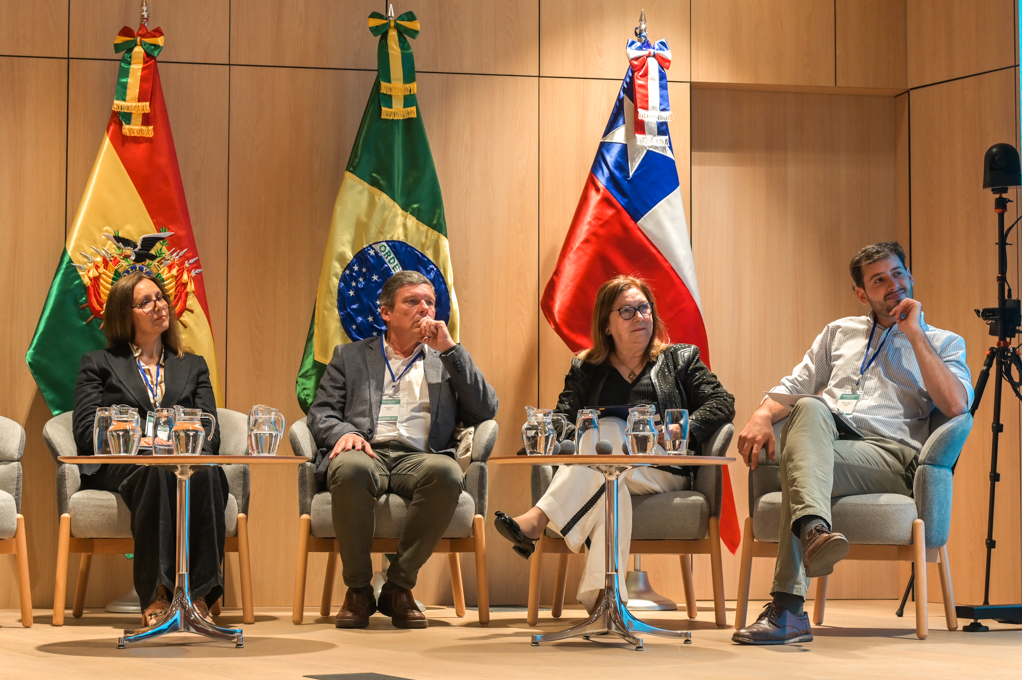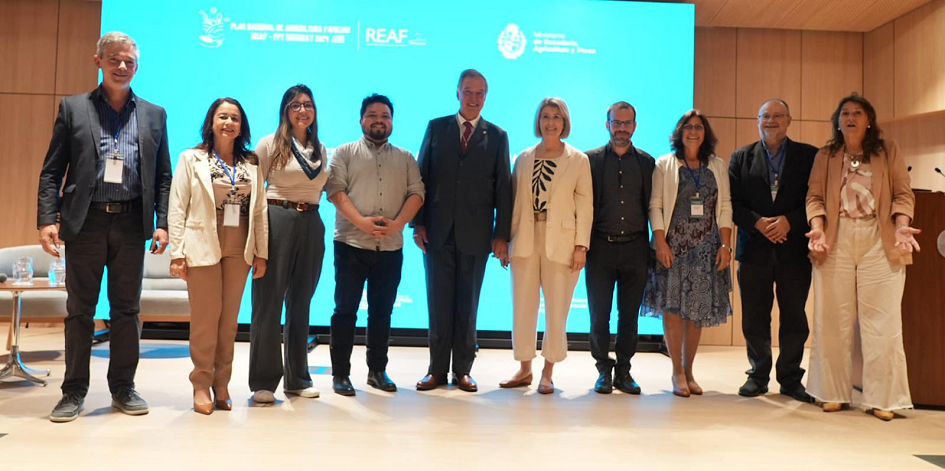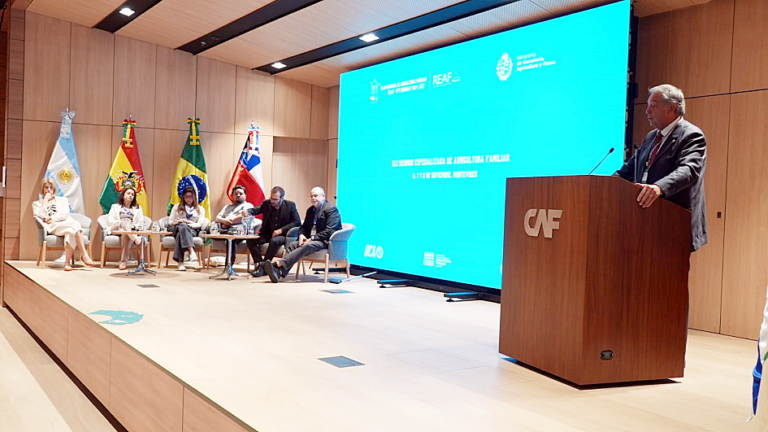On November 7, 2024, Montevideo was the venue for the XLI Specialized Meeting on Family Farming, a meeting that took place at the headquarters of CAF - Development Bank of Latin America and the Caribbean. Organized by the Ministry of Livestock, Agriculture and Fisheries (MGAP) and FAO, the event brought together experts from the region, officials and key rural stakeholders with the aim of strengthening support for small family farmers.

A commitment to small producers
At the opening of the event, the Minister of Livestock, Agriculture and Fisheries, Fernando Mattos emphasized the Uruguayan government's commitment to family farming. Mattos underscored the importance of public policies that promote the integration and strengthening of family farmers, pointing out that "there is no solution if we do not promote associativism; cooperativism; technical cooperation; financial support".
This vision is considered fundamental to the design and implementation of the National Family Farming Plan (PNAF) approved in June 2024, which seeks to articulate the efforts of different institutions to enhance the capabilities of this sector.
Inter-institutional coordination
The PNAF driven by the MGAP has succeeded in integrating various institutional actors, such as Antel, Inefop, Inju and República Microfinanzas,The plan focuses not only on improving production conditions, but also on social aspects, training and access to financing, three essential pillars for sustainable development of family farming. The plan focuses not only on improving production conditions, but also on social aspects, training and access to financing, three essential pillars for the sustainable development of family farming.

Rural connectivity
The president of Antel, Annabela SuburúIn his speech, he highlighted the role of the Uruguayan state-owned company in connecting Uruguay's rural areas, mentioning that connectivity is one of the major gaps faced by the sector. "Antel has a social role with the commitment to bring connectivity to the whole country", said Suburú, while explaining the state-owned company's participation in the program "Trained to transform" which promotes the digital inclusion of rural women.
This program has played a key role in training rural women in the use of new technologies. Antel has delivered 1,200 chips with 15GB monthly recharges for a year, providing the participants with access to information and enabling them to strengthen their digital skills, which are essential in an increasingly interconnected world.
Youth and rural development
The director of the National Youth Institute (Inju), Aparicio Saravia provided a key perspective by pointing out that "it is not the same to be a rural youth" and stressed the need to incorporate the viewpoint of young people in the development of the agricultural sector.

Technical advice and financing
The director of the National Institute for Employment and Vocational Training (Inefop), Pablo Darscht reflected on the challenge of "increase competencies and skills in the world of agriculture with cross-cutting components".
Rossana Fernandez, commercial manager of República Microfinanzas, explained how the institution has begun to finance family farmers in crisis situations, such as droughts or excessive rains.



